Papers by Dante Augusto Galeffi
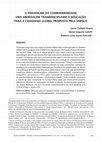
O presente artigo tem como objeto de estudo refletir sobre a Educação para a Cidadania Global (GC... more O presente artigo tem como objeto de estudo refletir sobre a Educação para a Cidadania Global (GCE) proposta pela UNESCO na Agenda pós-2015 para o Desenvolvimento das Nações Unidas. Trata-se de uma pesquisa de triplo campo teórico-epistemológicometodológico que procura desenvolver uma consciência-identidade de "Terra-Pátria", na qual o ser humano seja visto como uma mesma espécie com uma mesma evolução, pois a história futura da humanidade precisa de uma evolução do conhecimento para novos conceitos dialéticos transculturais e trans-humanistas. Visando o entendimento e o respeito das caraterísticas histórico-culturais de cada comunidade, partimos do paradigma da cosmodernidade formulado por Nicolescu, da complexidade de Morin, e da polilógica de Galeffi para abordar o conhecimento através de uma epistemologia complexa, criativa, transdisciplinar, polissêmica, transcultural, transnacional e transpolítica, que promova a GCE como o principio de energia causal do processo de transformação do ser humano e da sociedade-mundo. Como resultado, propomos a criação de uma constelação de escolas-ONGs irmãs que desenvolvam projetos educativos altruístas de cooperação em todos os rincões do planeta para construir, em última instância, um novo horizonte transdemocrático na GCE proposta pela UNESCO para o século XXI.
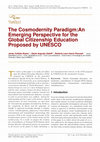
T he nature of this paper is to study and reflect upon the Global Citizenship Education (GCE) pro... more T he nature of this paper is to study and reflect upon the Global Citizenship Education (GCE) proposed by UNESCO in the post-2015 Development Agenda led by the United Nations. It is research for the triumverate of an epistemologicaltheoretical-methodological field that seeks to develop a consciousness-identity of "Earth-Homeland", where human beings are seen as a same biological species with the same evolution, because the future history of humanity requires knowledge evolution towards new transcultural and transhumanist dialectics concepts in order to prevent future war conflicts. Aiming the understanding and the respect of the historic-cultural characteristics of each community, we start from the Cosmodernity paradigm formulated by Nicolescu, the complexity of Morin and the poly-logic of Galeffi, to approach knowledge through a complex, creative, transdisciplinary, polysemous, transcultural, transnational and transpolitical epistemology that promotes GCE as the causal energy principle of the transformation process of the human being and the world-society. As a result, we propose the creation of a Constellation of Twinned NGO-Schools which develop altruistic educational projects of cooperation in all corners of the planet to build, ultimately, a new transdemocratic horizon in the GCE proposed by UNESCO for the twenty-first Century.
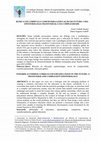
"Resumo: Neste trabalho procuramos realizar um diálogo com a problemática emergente da criação de... more "Resumo: Neste trabalho procuramos realizar um diálogo com a problemática emergente da criação de um currículo comum para a educação do futuro, no âmbito mundial. Um currículo que precisa romper com o paradigma positivista do passado, para se articular como um sistema complexo e transversal, pois o mundo inter-relacionado de hoje apresenta novos desafios e necessidades para o alcance da cidadania global do século XXI, que só pode se compreender através de um pensamento complexo. No final apresentamos uma crítica das reformas educativas tratadas pelo Conselho da Europa (COE) relativa à Declaração da Educação Global do ano 2002 ocorrida em Maastricht. Pois se pretende conscientizar os estudantes-cidadãos sobre as problemáticas mundiais, mas que ainda ficam longe de constituir uma verdadeira formulação radical de educação inclusiva que traga consigo uma mudança estrutural e uma nova visão mundial capaz de cumprir os Objetivos de Desenvolvimento do Milênio formulados pelas Nações Unidas para 2025 (ODM).
Palavras-chave: Filosofia da Educação. Epistemologia. Teoria da Complexidade. Transdisciplinaridade. Educação global.
Abstract: In this work we make a dialogue about the problems to create a common curricula for a future education. A common curricula that needs to break with the positivist paradigm of the past, to be understood how a complex system and transversal, because the interrelated world of today brings new challenges and needs for the global citizenship of twenty-first century, which can only to be understood with a complex thought. In the end we present a review about the educational reforms that have been treated since the North-South Centre of the Council of Europe (COE) in the Declaration of Global Education in 2002 in Maastricht, because it aims to raise awareness students- citizens about the world problems, but that it is still far from being a true radical formulation of an inclusive education that will bring a structural change and a new world vision to achieve the Millennium Development Goals formulated by United Nations in 2025 (MDG).
Keywords: philosophy of education, epistemology, Complexity Theory, transdisciplinarity, global education."

Resumo: No presente trabalho pretendemos fundamentar que a Educação Global articula e sustenta me... more Resumo: No presente trabalho pretendemos fundamentar que a Educação Global articula e sustenta metodologias culturais transversais e inovadoras para o alcance de uma aprendizagem significativa e uma conscientização fenomenológica da cidadania para conseguir o cumprimento dos Objetivos de Desenvolvimento do Milênio das Nações Unidas para 2015 e 2025. Deste modo, abordamos o processo de ensino-aprendizagem a partir da dialógica adjacente nas temáticas multidisciplinares, interdisciplinares e transdisciplinares possibilitada pela Educação Global para a construção e difusão do conhecimento, a serviço do pleno desenvolvimento humano sustentável. A partir da constatação de conflitos cognitivos entre os diferentes atores educativos é possível desenhar alternativas pedagógicas para a efetuação de uma aprendizagem significativa pragmática sobre as diferentes problemáticas do mundo globalizado do século XXI. Portanto, uma aprendizagem que dispõe dos meios existenciais e dos fundamentos teórico-epistemológicos do sócio-construtivismo e da teoria da complexidade para operar uma mudança no processo educativo das sociedades e povos em desenvolvimento. Porque a Educação Global, em o seu esforço de conseguir uma sociedade livre, justa e igualitária, habilita a mobilização pela comum-responsabilidade de superar o estado de pobreza e submissão ideológica de povos e nações do planeta em processo de desenvolvimento, algo que interessa diretamente a todos os latinoamericanos.
Palavras-chave: educação global, aprendizagem significativa, difusão do conhecimento, cidadania, Objetivos de Desenvolvimento do Milênio.
Abstract: In this paper we propose the idea that the Global Education supports cross-cultural and innovate methologies to achieve meaningful learning and a phenomenological awareness of citizenship to achieve compliance with the Millennium Development Goals of the United Nations for 2015 and 2025. In this way, we approach the teaching-learning process from the adjacent dialectic in the multidisciplinary, interdisciplinary and transdisciplinary issues that Global Education enables us to build and diffusion of the knowledge, in service of full human development. From the observation of cognitive conflicts between different actors is possible to design pedagogical alternatives for meaningful and pragmatic learning about the various problems of the globalized world of the XXI century. Therefore, a meaningful learning that has the existentialism and the theoretical-epistemological fundamentals of the socio-constructivism and the complexity theory to make a change in the educational process of developing societies and peoples. Because Global Education, in an effort to get a free, fair and equal society, enables the common-responsibility mobilization to overcome the state of poverty and ideological sumission of peoples and nations of the planet in the process of development, something of direct interest to all Latin Americans.
Key-words: global education, meaningful learning, diffusion of knowledge, citizenship, Millennium Development Goals.
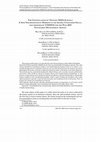
The purpose of this paper is to describe the most relevant features of the Global Citizenship Edu... more The purpose of this paper is to describe the most relevant features of the Global Citizenship Education (GCE) proposed by UNESCO for the Post-2015 Sustainable Development Agenda. Thus, after having submitted an educational, political, and epistemological proposal in Rio+20 to achieve a sustainable development for eradication of poverty, our research will be focused in the construc-tion of new philosophical discussions about the complexity of global problems of humanity in the third millennium. They include poverty, sustainable development, climate change, water scarcity, economic globalization, governance, ethics, health etc. Based on Complex Theory and transdici-plinary methodology, we also propose a transnational and transcultural educational milestone with the intentionality to contextualize human condition in the cosmodernity paradigm, which re-quires looking into the future with a polylogical perspective opened to universal interconnection and complexity of the world-society. Then, we propose the creation of a Constellation of Twinned NGOs-Schools which develop altruistic educational projects of cooperation in all corners of the planet to build, ultimately, a new transdemocratic horizon in the Cyber-Space-Time.
Revistas by Dante Augusto Galeffi
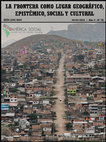
by Jose María Barroso Tristán, Jefferson Virgílio, Francisca Fernández, Carlos Benítez Trinidad, Dante Augusto Galeffi, Rocío Valderrama, Ivana Belen Ruiz-Estramil, Javier Andres Paez, Alessio Mirra, Lydia Pastrana Jiménez, and Marx Gómez Iberoamérica Social: Revista-red de estudios sociales, Año 5, Número IX, 2018
Iberoamérica Social nació teniendo entre sus finalidades resignificar conceptos como el de fronte... more Iberoamérica Social nació teniendo entre sus finalidades resignificar conceptos como el de frontera desde todas sus perspectivas. En la construcción del proyecto criticamos la limitada y tradicional definición de frontera como lugar de separación/ruptura entre dos espacios. Por el contrario, pretendemos situarla como un terreno de inabarcable riqueza en el que surge el encuentro entre las diferencias y, a partir de su conocimiento, el respeto a ellas, estableciendo caminos de mutua colaboración que favorezcan la convivencia y amplíen las posibilidades de crecimiento de las diferentes partes que comparten frontera. Es decir, planteamos la frontera como un lugar difuso que no se restringe a las limitaciones geográficas, sino que se amplía a todos los espacios donde se encuentran las diferencias y surgen posibilidades de conocimiento, convivencia y colaboración entre dos o más realidades diferentes.

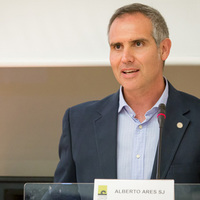

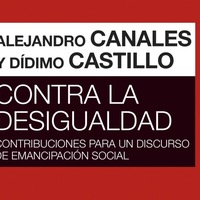



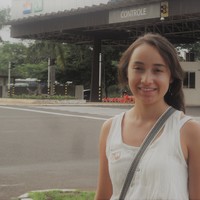


Uploads
Papers by Dante Augusto Galeffi
Palavras-chave: Filosofia da Educação. Epistemologia. Teoria da Complexidade. Transdisciplinaridade. Educação global.
Abstract: In this work we make a dialogue about the problems to create a common curricula for a future education. A common curricula that needs to break with the positivist paradigm of the past, to be understood how a complex system and transversal, because the interrelated world of today brings new challenges and needs for the global citizenship of twenty-first century, which can only to be understood with a complex thought. In the end we present a review about the educational reforms that have been treated since the North-South Centre of the Council of Europe (COE) in the Declaration of Global Education in 2002 in Maastricht, because it aims to raise awareness students- citizens about the world problems, but that it is still far from being a true radical formulation of an inclusive education that will bring a structural change and a new world vision to achieve the Millennium Development Goals formulated by United Nations in 2025 (MDG).
Keywords: philosophy of education, epistemology, Complexity Theory, transdisciplinarity, global education."
Palavras-chave: educação global, aprendizagem significativa, difusão do conhecimento, cidadania, Objetivos de Desenvolvimento do Milênio.
Abstract: In this paper we propose the idea that the Global Education supports cross-cultural and innovate methologies to achieve meaningful learning and a phenomenological awareness of citizenship to achieve compliance with the Millennium Development Goals of the United Nations for 2015 and 2025. In this way, we approach the teaching-learning process from the adjacent dialectic in the multidisciplinary, interdisciplinary and transdisciplinary issues that Global Education enables us to build and diffusion of the knowledge, in service of full human development. From the observation of cognitive conflicts between different actors is possible to design pedagogical alternatives for meaningful and pragmatic learning about the various problems of the globalized world of the XXI century. Therefore, a meaningful learning that has the existentialism and the theoretical-epistemological fundamentals of the socio-constructivism and the complexity theory to make a change in the educational process of developing societies and peoples. Because Global Education, in an effort to get a free, fair and equal society, enables the common-responsibility mobilization to overcome the state of poverty and ideological sumission of peoples and nations of the planet in the process of development, something of direct interest to all Latin Americans.
Key-words: global education, meaningful learning, diffusion of knowledge, citizenship, Millennium Development Goals.
Revistas by Dante Augusto Galeffi
Palavras-chave: Filosofia da Educação. Epistemologia. Teoria da Complexidade. Transdisciplinaridade. Educação global.
Abstract: In this work we make a dialogue about the problems to create a common curricula for a future education. A common curricula that needs to break with the positivist paradigm of the past, to be understood how a complex system and transversal, because the interrelated world of today brings new challenges and needs for the global citizenship of twenty-first century, which can only to be understood with a complex thought. In the end we present a review about the educational reforms that have been treated since the North-South Centre of the Council of Europe (COE) in the Declaration of Global Education in 2002 in Maastricht, because it aims to raise awareness students- citizens about the world problems, but that it is still far from being a true radical formulation of an inclusive education that will bring a structural change and a new world vision to achieve the Millennium Development Goals formulated by United Nations in 2025 (MDG).
Keywords: philosophy of education, epistemology, Complexity Theory, transdisciplinarity, global education."
Palavras-chave: educação global, aprendizagem significativa, difusão do conhecimento, cidadania, Objetivos de Desenvolvimento do Milênio.
Abstract: In this paper we propose the idea that the Global Education supports cross-cultural and innovate methologies to achieve meaningful learning and a phenomenological awareness of citizenship to achieve compliance with the Millennium Development Goals of the United Nations for 2015 and 2025. In this way, we approach the teaching-learning process from the adjacent dialectic in the multidisciplinary, interdisciplinary and transdisciplinary issues that Global Education enables us to build and diffusion of the knowledge, in service of full human development. From the observation of cognitive conflicts between different actors is possible to design pedagogical alternatives for meaningful and pragmatic learning about the various problems of the globalized world of the XXI century. Therefore, a meaningful learning that has the existentialism and the theoretical-epistemological fundamentals of the socio-constructivism and the complexity theory to make a change in the educational process of developing societies and peoples. Because Global Education, in an effort to get a free, fair and equal society, enables the common-responsibility mobilization to overcome the state of poverty and ideological sumission of peoples and nations of the planet in the process of development, something of direct interest to all Latin Americans.
Key-words: global education, meaningful learning, diffusion of knowledge, citizenship, Millennium Development Goals.